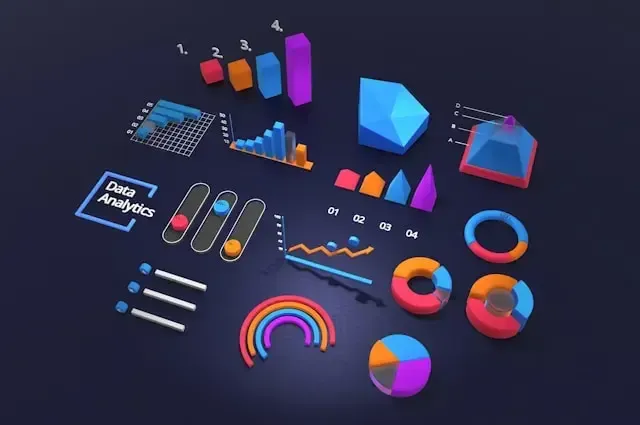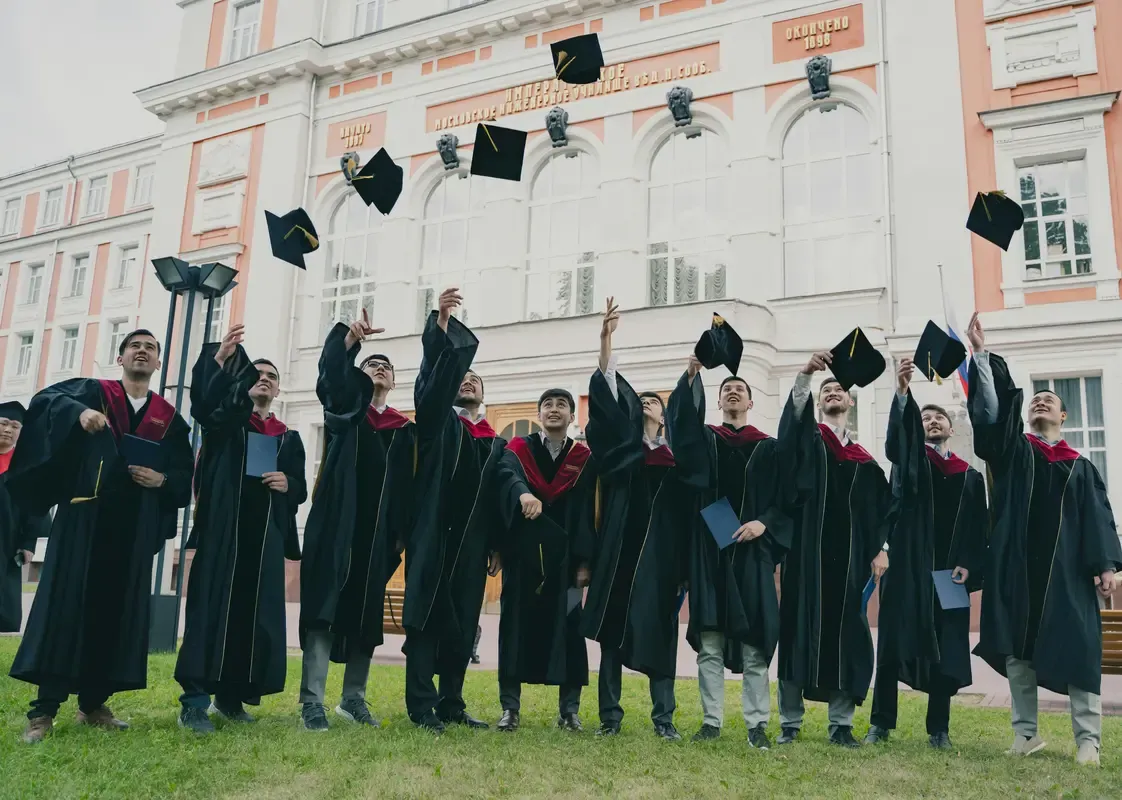These days, the role of AI has gone way beyond that of visual effects. Tools such as IBM's Watson have been used to create movie trailers.
A Short History of AI in Film
AI has single-handedly managed to change filmmaking in Hollywood-most of it starting with the invention of Computer-Generated Imagery (CGI) throughout the 1970s-since forever. Films such as the 1993 Jurassic Park and the 2009 Avatar really showcased a few leaps in visual effects because of algorithms that let directors realize visions in ways previously unimaginable.
These days, the role of AI has gone way beyond that of visual effects. Tools such as IBM's Watson have been used to create movie trailers. For example, the trailer for Morgan was created by AI back in 2016.
Platforms like ScriptBook analyze scripts for their box office potential-insider information that might just determine the production decisions.
AI-Assisted Filmmaking in Action
AI occupies front-row seats in filmmaking in the following ways:
-
-
Script Writing: Apart from being used copiously to pen movie scripts, the art of scriptwriting is at the same time utilized by creative people to get prompts for a story or, for that matter, even full-fledged dialogues.
-
Editing: One such tool, Adobe Sensei uses AI in automating and speeding up the process of video editing.
-
Casting and Character Design: AI can scour viewer tastes to suggest actors or develop completely virtual characters altogether.
-
From Script to Screen: Will Artificial Intelligence Replace the Creative Panorama of the Directors?
Artificial Intelligence in the Development of Scripts and Plots
Application of AI increasingly occurs at the pre-production stage, which is actually the creation phase. Advanced tools, such as ChatGPT and Jasper AI, can develop elaborate storylines, suggest plot twists, and even write captivating dialogues.
AI scripts, like Sunspring 2016, though surreal, show part of the possibility of AI in storytelling.
Artistic and Emotional Limitations of AI
AI can never replace humans in terms of how much emotion and subtlety we can input into a movie. As a director, his or her creative insight draws from the experiences they face, emotions, and knowledge about culture.
While it may be the case that artificial intelligence can delve into patterns and predict about any trend, it still cannot intuitively see the human emotion inside.
It is such that raw humanity movies like Schindler’s List or The Pursuit of Happyness that no algorithm churning through data can replace real human pain or happiness or triumph.
Lights, Camera, Algorithm: The Tech Behind AI-Generated Films
Generative AI Models in Action
Active forms of these-text-GPT and images-DALL-E-further facilitate generative AI models in making such films. They are able to:
-
-
Automate detailed storyboarding from a textual description.
-
Create realistic characters and landscapes.
-
Adding speech, either through voice provided by text-to-speech technologies or simulating voice-over in dialogues.
-
Deep Learning for Animation and Voice Generation
Deep learning models created a big bang for animation and the generation of voices. Companies like Pixar and Disney tried AI-enabled tools in order to give more realistic movements and expressions to the characters.
Meanwhile, AI voices have long been at work-emulating voices of actors, letting dead ones perform in new movies. All this opens a world of exciting opportunities and, at the same time, opens ethical questions.
Human Touch: What Directors Bring into the Movie That AI Can't Replicate
The Power of Human Creativity
Only film directors have the ability to invent us into intricate stories full of emotional depth, cultural importance, and insight into personal worlds.
Such creativities are after all functions of life experiences and insight into the human condition-something artificial intelligence can neither understand nor replicate.
Filmmakers like Christopher Nolan and Greta Gerwig have been creating movies that are relatable to so many aspects, be it clarity on philosophical themes to comments on pop culture.
Subtleties in culture and society are things which make AI fall flat because of its mechanistic mode of thought. Equally monumental is the failure of AI in depth for cultural nuance and societal dynamics.
The 2018 film Black Panther celebrated African culture in ways only a human director (Ryan Coogler) could have envisioned-a reflection of deep-living experiences and well-represented perspectives.
A Future in Collaboration: AI as the Assistant Filmmaker
Boosting the Creative Processes
Instead of replacing humans, AI might be a giant collaborator for filmmakers. Software like Runway ML and DeepArt.io, give license to the director to play with styles, achieve visualization for the idea in thought, and automate those tasks that are most time-consuming.
Case Studies of AI Integration
Steven Spielberg, during the shooting of Ready Player One in 2018, used AI-enabled pre-visualization tools for a few of the complex action sequences.
It is said that in 2019, Jon Favreau's version of The Lion King relied hugely on virtual reality and AI in generating the relatively realistic movements of animals.
As a capacity to execute repetitive tasks, the A.I. indeed does free the director to be more imaginative, more creative in his narration.
Ethical and Legal Challenges of AI-Generated Movies
Ownership of AI-Generated Content
Perhaps the biggest challenge to ownership is the most substantial obstacle to filmmaking from the AI point of view. If the AI has written a script or created a visual, who owns the rights, the programmer, the director, or the AI itself?
Deepfakes and Bias Concerns
AI-generated Deepfakes pose a threat to the authenticity of movies and the viewership's trust in movies.
Other than this, if the AI models are trained on biased information, then it further extends into perpetuating stereotypes-a quite valid ethical concern in relation to the representation and inclusion of film.
Will Viewers Like AI-Created Stories?
The Authenticity Factor
As good as AI-generated content will ever be, sometimes audiences simply love the authenticity of a human-generated storyline. After all, films that stir the emotions of people generally work much more than those boasting technical perfection.
Genres Where AI Could Shine
Creative licenses for innovative, often nonlinear storytelling, come into play for more experimental or animated genres. There, AI most likely could excel. Just imagine AI-created visuals extending the bounds of imagination for an otherworldly fantasy or science fiction tale.
The Oscars with AI: Could an Algorithm Win Best Picture?
Rethinking Cinematic Excellence
With technological evolution, we may reach that stage when a movie created by an AI would attain highly acclaimed awards. But then, the defining parameters of cinematic excellence would be changed to include the contribution of the non-human agent.
Limitations to Recognition of AI-Generated Works
The film industry can also self-regulate itself in embracing AI-created works into the same family as that which brings together human ingenuity and creativity. Of course, hybrid creations where AI supports human creatives might tear this barrier down little by little.
Democratization of Filmmaking with AI
Democratization for Indie Creators
AI filmmaking tools are enabling even independent filmmakers on the most shoestring of budgets to create more. Platforms such as Runway ML allow small-scale filmmakers to do world-class visual effects.
Barriers to Adoption
However, much of the filmmaking involves technical and resource requirements that create a need out of the financial reach of people starting out in the industry.
Impact of AI on Film Genres and Trends
The impact of AI in cinema is such that movie genres can bloom into totally new dimensions. Imagine adding a genre of interactive storytelling-the AI makes one story in real time with the suggestions and reactions of the audience-in fact, it well could be there.
Of course, that would again be another case of how new technological facilities gave birth to a rising enthusiasm for personalized entertainment.
Besides, AI-driven contents might well go further into the realm of science fiction and fantasy with the unleashing of generative AI tools in those genres.
This would well mean that what the audience expects from a cinema experience would change with traditional storylines combined with state-of-the-art technology.
Role of AI in Globalising Film Production
Another exciting application of AI is its capability to make filmmaking 'global' in ways hitherto unimaginable. Some of the big barriers tumble down, like language barriers-software translation and dubbing powered by AI assures quality.
Think about AI-powered platforms like Papercup, which are doing an outstanding dubbed version of voiceovers in many different languages while maintaining precisely the same emotional tone of performance.
That way, it is easy to appeal to larger masses without necessarily chipping even a speck of artistic integrity, rather obvious.
Even better, AI can scan trends in regional tastes and make recommendations on them so movies stay relevant in diverse contexts yet universally appealing.
Innovation versus Tradition in Filmmaking
Talking about filmmaking, the world is seeing constant change ushered in with the advent of AI. What shall work is a judicious balance between innovation and tradition.
Though this technology does allow some neat, efficient, and creative tools, one should not fall in love with AI at the cost of real storytelling by filmmakers.
Great directors possess this human feel that comes onto the screen, with which audiences identify to this very day.
It will be the filmmakers who will open up to the possibilities of modern technologies in an attempt to position AI as support for their work and not to lose the soul of cinema.
That opens a new Golden Era in filmmaking whereby creativity knows no limits between man and machine in their intermingled involvements.
AI-Driven Marketing: Revolutionizing Film Promotion
Now, even AI has started to make inroads into the fields of film promotion or marketing. Advanced algorithms dive deep into demographics, tastes, and online behavior in order to create highly targeted marketing campaigns.
AI can let the studio itself curate personalized trailers, social media content, and email campaigns that best fit the compelling reasons for targeted segments of audiences.
AI applications, such as Persado, go so far as to optimize messaging in the choice of words and visuals most likely to engage a viewer.
That's the precision multiplying the marketing efficiency, letting small studios compete fairly on equal terms with large-scale productions by amplifying their limited resources toward a maximum effect.
AI and Evolving Fan Engagement
AI increasingly connects filmmakers with their audience along a completely new avenue through a suite of AI-driven fan engagement tools and platforms.
Through a platform such as Cinelytic, data-driven insights curate the content to predict reactions and make recommendations in light of how fans will respond.
AI chatbots-for example those used in blockbusters film campaigns, immerse the fans in character details or behind-the-scenes information with which to become drawn into the experience.
Even AI-created fan art and story extensions let audiences interact creatively with their films and help creators forge closer bonds with the viewers.
Training a Next Generation of AI-Literate Filmmakers
Filmmaking, with the emergence of AI, breeds a different crop of directors and creators-some steeped in traditional storytelling, others in high technology.
Thus, even film schools and workshops are increasingly offering courses in AI-related topics-from the use of Unreal Engine in virtual production to generative AI in the development of concepts.
The marrying of this technical acumen to artistic capability would augur well for the filmmaker of the future within an industry that quite literally tightropes between technology and creativity.
Perhaps with the next generation of filmmakers, they will not only be telling the stories but could co-create with AI.
The Distant Horizon: What the Future Holds for AI in Cinema
Predictions for the Next Decade
The hybrid between original and AI generated films is more likely to prevail where the movies made by AI are about to become common. Directors will really fall back upon such pre-visualization, editing, and even casting of roles which AI can fill.
The Possibility of an AI-Led Blockbuster
While a fully AI-led blockbuster might turn out to be reality within the decade, this again is anybody's guess. Whether such films would be accepted by the audiences or not is anybody's guess again.
Final Thoughts
AI is a game-changer in movie creation-full of great opportunities, yet filled with challenges in equal measure. Whereas AI will probably never replace the creative vision of the director, it doubtless will play a much bigger collaborative role in creation.
Thus, the future of cinema lies in how well one can balance technological innovation with that human touch which makes storytelling an art.


























